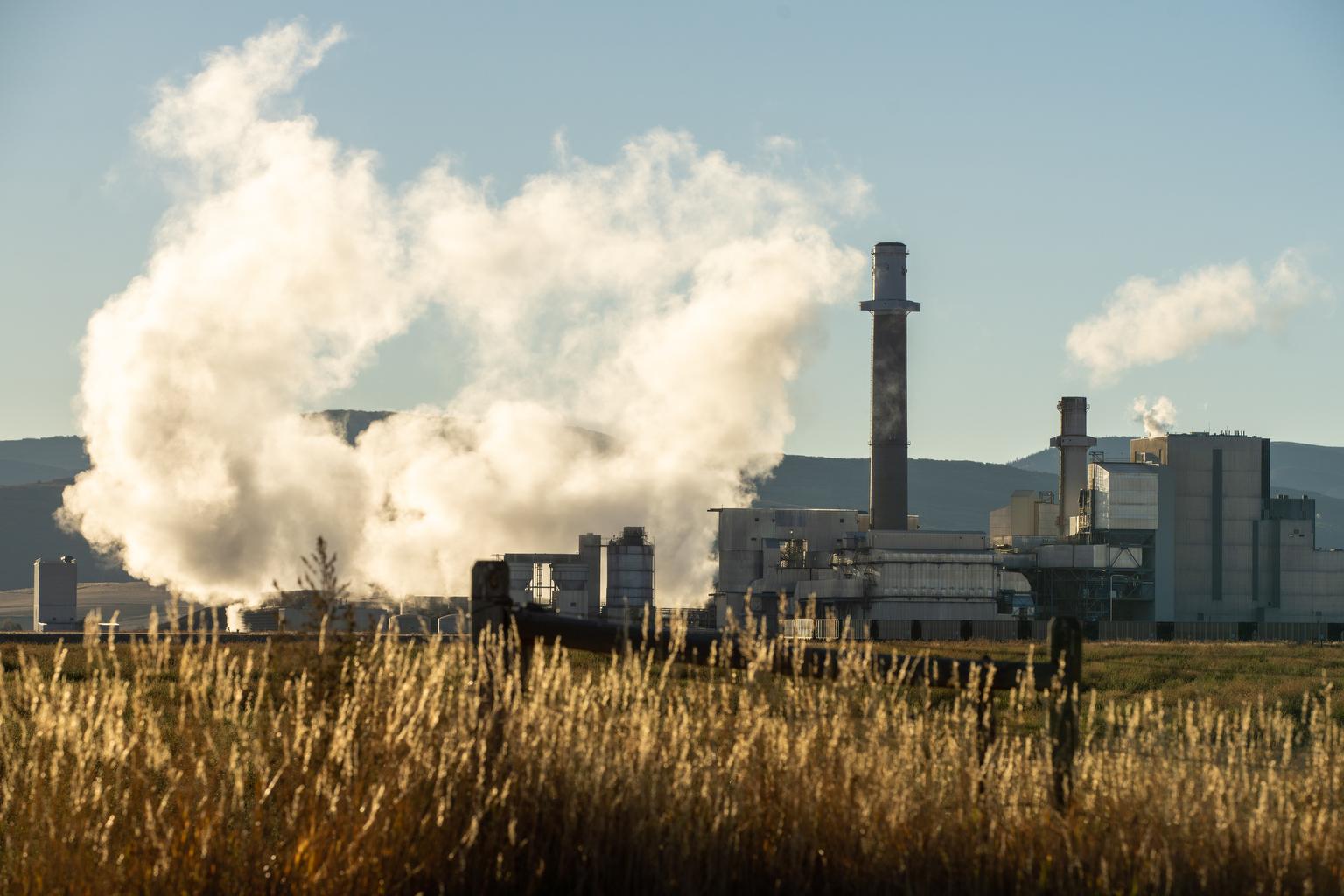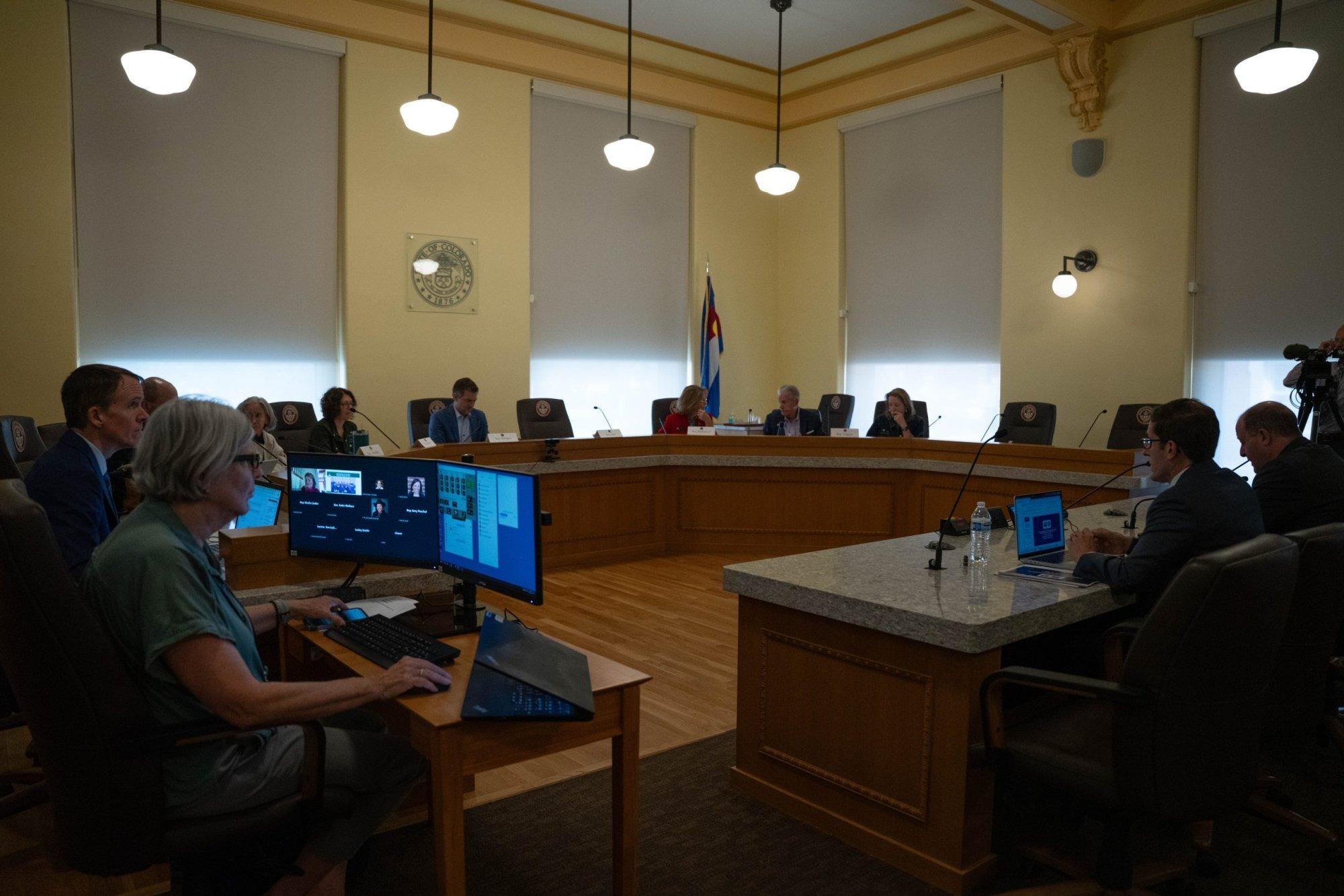
The U.S. Environmental Protection Agency wants to reject Colorado’s plan to close several coal-fired power plants, arguing the scheduled retirements threaten grid reliability and fail to comply with federal law.
Colorado plans to close all six of its remaining coal-fired power plants by 2031. The transition is part of the state’s broader effort to cut its contribution to climate change and shift to cleaner energy sources like wind and solar.
The preliminary decision published Wednesday, however, doesn’t invalidate the state-level regulations and utility agreements behind those deadlines. It instead rejects Colorado’s attempt to codify those retirement dates into its Regional Haze Plan, which the federal government requires to protect air quality above national parks and federally designated wilderness areas.
Colorado’s top air quality regulator said the proposal won’t derail the planned transition away from coal. At the same time, environmental advocates fear the decision marks an opening salvo in a far broader effort to stop states from shifting away from coal to confront climate change and safeguard local air quality.
“It really speaks more broadly to what we’re up against as a state,” said Jeremy Nichols, a senior advocate for the Center of Biological Diversity’s environmental health program. “The administration is basically declaring war on our efforts to promote clean energy and protect people and the climate.”
Why the EPA wants to reject Colorado’s plan to shutter coal plants
The move marks the Trump administration’s latest attempt to revive a struggling coal industry.
Since retaking office, the president has signed multiple executive orders to open new coal mines on federal lands and loosen pollution standards for coal plants. U.S. Energy Secretary Chris Wright, the former CEO of a Denver-based fracking firm, also intervened to stop the planned closure of a coal-fired power plant in Michigan.
The recent preliminary decision takes direct aim at state-level policy to wind down the coal industry. In a phone interview with CPR News, Cyrus Western, the administrator of EPA region 8, echoed a key argument laid out in the proposal: federal law doesn’t allow Colorado or any other government to force utilities to close power plants.
“We believe that the Clean Air Act does not give anybody the authority to shut down coal generation plants against the owner's will,” Western said.
In fact, the proposed decision claims any attempt to shutter a power plant exceeds the boundaries of the U.S. Clean Air Act and violates constitutional protections against taking private property without just compensation.
Nichols said those claims should alarm anyone looking for leadership from climate-forward states like Colorado or California. Even if the proposed decision doesn’t immediately scrap plans to retire coal-fire power plants, he worries it could lend credence to utilities or pro-fossil-fuel groups trying to delay any transition. It also lays out a far broader legal argument to block states from forcing utilities to stop burning coal.
“We may have state rules, but they won't be federally approved,” Nichols said. “What's worse is that EPA is calling into question the overall legal viability of these closure dates,”
The EPA also argues closing coal-fired power plants could make the grid less reliable. In its proposed decision, the agency extensively discusses Colorado Spring utilities, which recently initiated talks with Colorado air quality officials to continue operation of the Ray Nixon Power Plant past a planned retirement date at the end of 2029.
Danielle Nieves, a spokesperson with Colorado Spring Utilities, said the price of renewable energy has skyrocketed due to “regulatory uncertainty” and “ongoing supply chain congestion.” In addition, Nieves said the utility has struggled to secure access to enough transmission lines to ferry clean electricity to customers.
As a result, the utility supports the EPA’s effort to remove the deadline from the state’s air quality plan until it finds a more suitable retirement date, Nieves said.
Colorado digs in against the federal government
Colorado is already in the midst of a rapid transition away from coal.
In 2023, the U.S. Energy Information Administration reported the state relied on the energy source for 32% of its total electric generation, down from nearly 68% in 2010. The transition has occurred both due to economic concerns and state regulations requiring utilities to cut the contribution to climate change.
In a written statement, Michael Ogletree, Colorado’s senior director of air quality programs, said the EPA’s proposed decision won’t change Colorado’s direction or delay the shift.
“Utilities are moving away from coal because it’s no longer the most affordable or reliable option,” Ogletree said. “Many coal plants have already shut down or are on track to retire — driven by economics and cost savings for consumers, not federal mandates. That transition is locked in through utility planning, and will continue regardless of this federal decision.”









